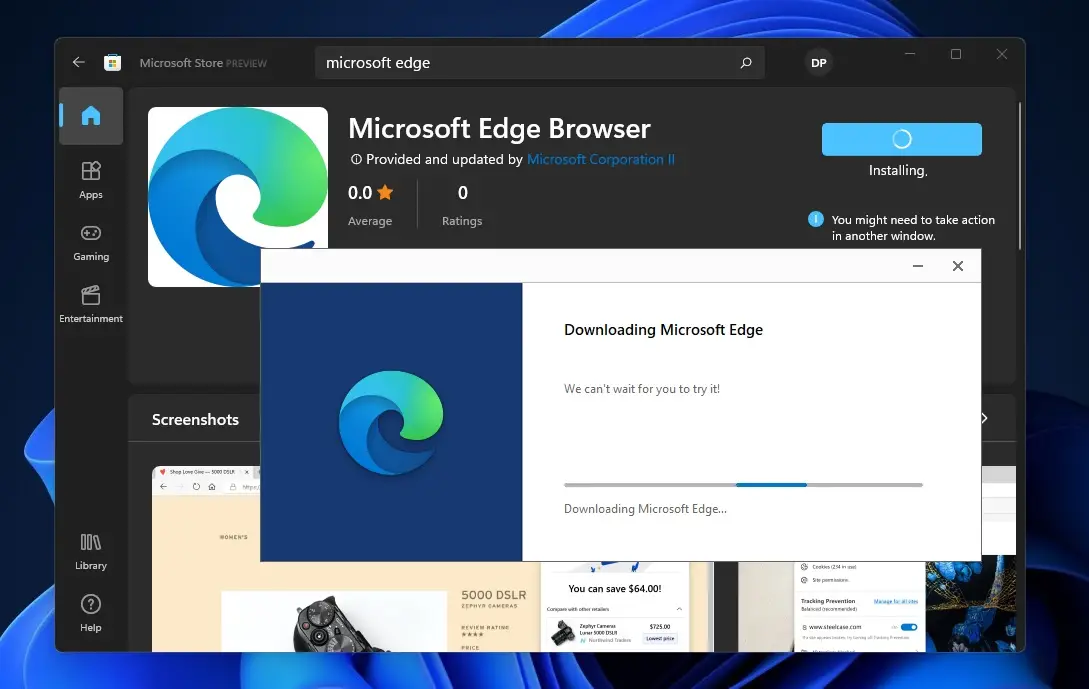Microsoft Explains Why Microsoft Edge Disk Cache Compression Improves Performance

“Our goal on the Microsoft Edge team is to deliver the best performing browser possible on Windows and other platforms,” Microsoft writes in the blog post. “When a browser uses too many resources, it not only impacts the browsing experience but can also slow down the entire system. However, when it comes to performance optimizations, we often need to balance optimizing for the entire system, since optimizing for one resource can often come at a cost increasing the use of another resource.”
But an unlimited cache can cause the system to run out of hard drive space, so Microsoft needs to carefully manage the size of the cache, especially on devices that run low on disk space.
“… We need to carefully manage the size of the cache especially on devices with low disk space, since an unbounded cache can lead to the system running out of disk space,” it explains. “To prevent the browser cache from consuming all available disk space, browsers already moderate disk cache use based on available space. This issue becomes critical especially on systems with low disk space.”
Microsoft improves performance by maximizing cache usage while reducing disk usage by compressing local cache files, which are usually highly compressible. Starting from Microsoft Edge version 102, if Microsoft detects that the system meets the conditions for automatic compression, it will automatically enable cache file compression. Enabling this feature will not cause performance degradation. On the contrary, it will help users save space and improve user experience.





